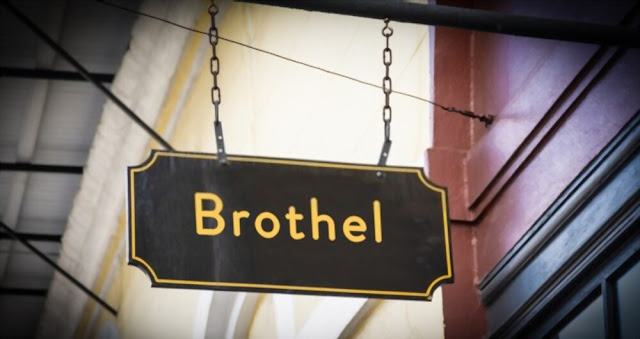Introduction
The global sex industry, often shrouded in secrecy and stigma, has been an enduring component of societies worldwide. Estimated to be worth $186 billion globally, the industry is vast and varied, encompassing street prostitution, escort services, online offerings, and brothels. With this, the dialogue regarding the safety of sex workers continually echoes in the sociopolitical sphere. The emergence and growing acceptance of licensed brothels within this narrative is thus noteworthy.
Licensed brothels represent regulated organisations where sex work is legitimized, controlled, and conducted in a safe environment. They offer a fresh perspective on an age-old trade, generating profound implications for worker safety, legal aspects, and societal understanding of sexual commerce. This article aims to shed light on the impact licensed brothels have on bolstering the safety of sex workers and altering the associated narrative.
Bustling In The Shadows: The Dangers Of Unregulated Sex Trade
Whilst the sex industry is as old as civilisation itself, so too is its entanglement with dangers and health risks primarily stemming from its unregulated nature. Across the globe, from America's hidden alleyways to Africa's bustling marketplaces, unregulated sex workers face considerable and often life-threatening risks. They are subjected to violence, exploitation and are perennially vulnerable to sexually transmitted diseases due to the lack of mandatory health checks and regulations.
Investigating specific global incidents reveals these alarming dangers. In Uganda, for example, unregulated sex workers are often victims of violence and discrimination, both from clients and law enforcement. Russia's world of underground sex work narrates its own tales of brutality and blackmail. Without oversight, regulation, and optimal health infrastructure, these workers are left exposed to alarming risks.
Licensed Brothels: A Beacon Of Safety?
At the other end of the spectrum, licensed brothels, where sex work is legalised and regulated, present a stark contrast to the unregulated sex trade. By offering a controlled and supervised environment, these institutions aim to mitigate many of the aforementioned risks associated with street prostitution or underground sex work.
In terms of structure, licensed brothels typically comprise clean, secure facilities where sex work can be conducted safely. They operate under stringent regulations, imposing mandatory regular health checks, ensuring the use of protection, and imposing strict policies against violence and exploitation. When compared to their unlicensed counterparts which operate under constant fear and uncertainty, this environment invites a safer alternative for those engaged in sex work.
Impact Of Licensed Brothels On Sex Worker Safety
When effectively implemented, licensed brothels significantly enhance the safety and health provisions for sex workers. Not only are they healthier and safer physically, but licensed brothels have also demonstrated a marked improvement in psychological well-being.
Researchers in Nevada, the only US state with legalised brothels, observed that these regulated establishments not only curbed violence and exploitation but also had near-zero rates of HIV and STD incidence among workers. In addition to this, through candid interviews with manifold workers across sectors, it emerges that safety wasn't solely confined to physical welfare. Many noted an enhanced sense of emotional security, financial stability, and professional validation upon shifting from the streets to a licensed brothel.
How Licensed Brothels Are Changing The Narrative
Licensed brothels are not only enhancing safety for sex workers but they're also gradually ameliorating societal perceptions about the profession. The legitimisation of sex work fosters a shift from seeing sex workers as criminals or victims, to recognising them as professional service providers operating in a safe, controlled environment.
The socioeconomic impacts are also noteworthy. The legalisation and regulation of brothels provide taxable revenue, contributing a significant amount to local economies. For instance, in Nevada, brothels rake in approximately $10-15 million each year in county revenues. This economic impact nudges the perception of this age-old industry towards acknowledgment and acceptance.
Case Study: Australia
Australia offers an insightful case study to truly comprehend the impact of licensed brothels. Australia's sex work laws vary by state, but in Victoria, licensed brothels are legal and heavily regulated. Comprehensive provisions for compulsory health checks, protection usage, and strict policies against violence are provided to ensure a safe working environment.
Feedback from sex workers in Victoria's licensed brothels corroborates the effectiveness of these measures. Most reported feeling safer and more secure at work. They also appreciated the legal support, allowing them recourse if any violations occurred. The Australian example reinforces the key role licensed brothels play in enhancing sex worker safety.
Prospects And Challenges: The Road To Improving Sex Worker Safety
While the prospects of licensed brothels are promising, various challenges persist. The principal opposition arises from moral and ethical debates, wherein society's conservative sections view sex work negatively, regardless of the safety and regulation criteria. Furthermore, transitioning from an entirely unregulated system to a licensed one could prove logistically challenging for some countries.
Addressing these challenges, solutions could include robust advocacy, acknowledging sex workers' perspectives, and an unflinching commitment to their safety and rights. Rigorous dialogues about legality and morality, coupled with education about sex work and worker safety, can also play a pivotal role.
Conclusion
In conclusion, licensed brothels represent a crucial development within the global sex industry, providing a far safer, healthier, and more secure environment for sex workers. With examples like Australia serving as potent benchmarks, the benefits of such institutions are clear. However, it calls for continued empathy, education, and advocacy to improve sex worker safety and well-being. It's fundamentally a question of human rights – every individual deserves a safe and respectful work environment, and sex workers are no exception.

.jpg)





No comments:
Post a Comment